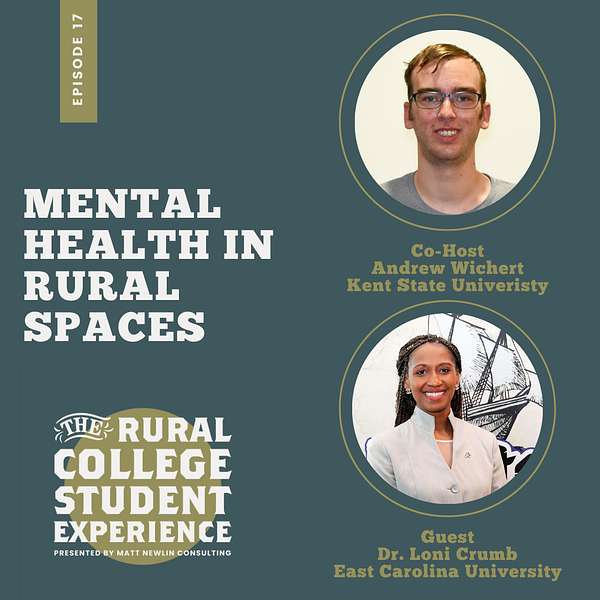
The Rural College Student Experience
The Rural College Student Experience is the first and only podcast dedicated exclusively to centering rural college student voices in conversations about higher education access and equity. This podcast is a space for rural students to share their stories, inspire others, and challenge the misconceptions about rural college students.
Hosted by Dr. Matt Newlin (mattnewlin.com), RCSE features student guests —a currently enrolled undergraduate or graduate student from a rural background—who shares their experiences navigating college. Together, we discuss the barriers and challenges rural students face, as well as the resilience, strengths, and successes that define our journeys.
Find us on Bluesky: @rcsepod.bsky.social
The Rural College Student Experience
Mental Health in Rural Spaces
On this episode, Dr. Matt Newlin is joined by Andrew Wichert to discuss mental health in rural spaces. Andrew comes from Northeastern Ohio and is attending Kent State University. He is currently working on his Associate of Science and Associate of Applied Business in Information Technology. After completing his degrees, Andrew plans on continuing with his Bachelor of Technical and Applied Studies with a concentration in Nonprofit Studies. He has had various types of jobs including managing amusement parks, working in the construction industry, and being a student employee at Kent State. He plans to continue his career in higher education upon the competition of his Bachelor’s degree.
Joining Andrew and Matt is Dr. Loni Crumb, an Assistant Professor in the Counselor Education Program in the Department of Interdisciplinary Professions at East Carolina University and a Licensed Clinical Mental Health Counselor. Dr. Crumb has authored over 80 scholarly publications and professional presentations related to student affairs in higher education, counseling and wellness, and holistic college student development. Her research interests include counseling in rural areas, rural education, promoting retention and persistence of underserved students in higher education, college student mental health, and social justice and multicultural training.